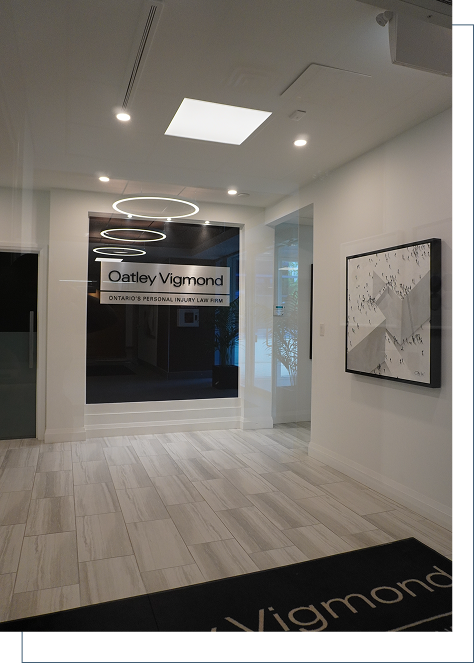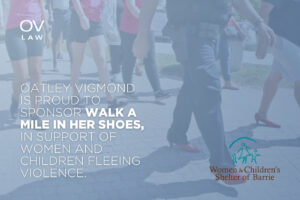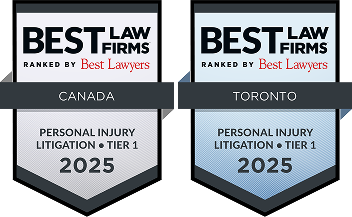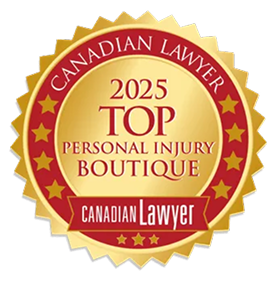Degloving Injury Lawyers in Ontario
Serving all cities including Toronto, North York, Barrie, Hamilton, Sudbury and North Bay.
Who We Are
Oatley Vigmond specializes in representing clients who have suffered degloving injuries from accidents, workplace incidents, or medical errors. We handle every step of the legal process, carefully compiling medical records, accident reports, and evidence to build a strong claim.
Working closely with medical and rehabilitation experts, we assess the full impact of your injury on your daily life and long-term well-being. Our team pursues all avenues of compensation, including accident benefits, personal injury claims, and long-term disability, while negotiating firmly with insurers.
We also ensure you understand your rights under Ontario law, including access to medical care, rehabilitation, lost income, and support for lifestyle adjustments. By taking care of the legal complexities, we let you focus on healing and regaining independence.


Why You Need a Lawyer After a Degloving Injury
A degloving injury is a catastrophic and often life-changing event that can involve severe tissue loss, long-term rehabilitation, and permanent physical limitations.
In Ontario, navigating the compensation system can be complex, as victims may be entitled to benefits through auto insurance, Workplace Safety and Insurance Board (WSIB) claims, or private personal injury settlements depending on how the injury occurred. Accident benefits under Ontario’s Statutory Accident Benefits Schedule (SABS) can cover medical treatments, prosthetics, rehabilitation, attendant care, and income replacement, but strict deadlines and detailed documentation requirements make it difficult to secure all entitled benefits without legal guidance.
An experienced lawyer can help you gather and organize medical records, accident reports, and expert assessments to support your claim while negotiating with insurance companies that may attempt to minimize payouts. They can also assist with appeals if claims are denied, ensuring you meet Ontario’s limitation periods and procedural rules.
By having a knowledgeable advocate, you can focus on your recovery, knowing that your legal rights, financial security, and access to long-term care are being fully protected.
Types of Degloving Injury Cases We Handle
Workplace Accidents:
Motor Vehicle Accidents:
Medical and Surgical Errors:
Premises Liability:
Recreational and Sports Accidents:
Criminal Acts or Assaults:
FAQ for Degloving Injury Lawyers
How Much Compensation Can I Receive for a Degloving Injury?
The amount of compensation for a degloving injury varies depending on the severity of the injury, the extent of physical and psychological impact, medical costs, lost income, and future care needs. In Ontario, victims may be entitled to compensation through several channels, including:
- Statutory Accident Benefits (SABS): Covers medical treatment, rehabilitation, attendant care, and income replacement for injuries sustained in motor vehicle accidents.
- Workers’ Compensation (WSIB): For workplace-related incidents, covering wage loss, medical expenses, and vocational rehabilitation.
- Civil Lawsuits / Personal Injury Claims: Can provide compensation for pain and suffering, loss of function, lifestyle changes, and other long-term impacts.
Because each case is unique, experienced legal guidance is crucial to accurately calculate the full value of your claim and ensure you receive all benefits and damages you are entitled to under Ontario law.
Do I Need a Lawyer for a Degloving Injury Case?
What is an Example of a Degloving Injury?
Can I Be At Fault in a Degloving Injury Case?
Yes, it is possible to be partially at fault in a degloving injury case, and Ontario law follows the principle of contributory negligence. This means that even if you share some responsibility for the accident, your compensation may be reduced proportionally to your degree of fault. For example, if a court finds you 20% at fault, any settlement or award you receive would be reduced by 20%.
However, determining fault can be complex in cases involving machinery, workplace accidents, or motor vehicle incidents. Insurance companies and legal teams will carefully assess evidence, including accident reports, witness statements, and expert opinions. Having an experienced personal injury lawyer ensures your rights are protected, that your degree of fault is fairly evaluated, and that you pursue the maximum compensation available under Ontario law.
Related Insights

Will I Be Assigned a Care Team for My Permanent Disabilities After Filing a Claim for an Accident?
If you or a loved one has suffered a serious injury in an accident, accessing the proper treatment is essential. A skilled, professional, and compassionate care team can ensure you

Oatley Vigmond Partners Recognized in the 2026 Edition of The Best Lawyers in Canada™ — Leading the Way in Car Accident Representation
Oatley Vigmond LLP is proud to announce that several of our lawyers have been recognized in the 2026 edition of The Best Lawyers in Canada™, reaffirming our position as one

Oatley Vigmond Personal Injury Lawyers Joins as Trail Blazing Sponsor for Walk a Mile in Her Shoes 2025
Oatley Vigmond Personal Injury Lawyers is proud to announce its sponsorship of the 2025 Walk a Mile in Her Shoes event, hosted by the Women & Children’s Shelter of Barrie.






